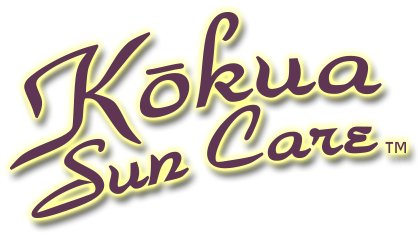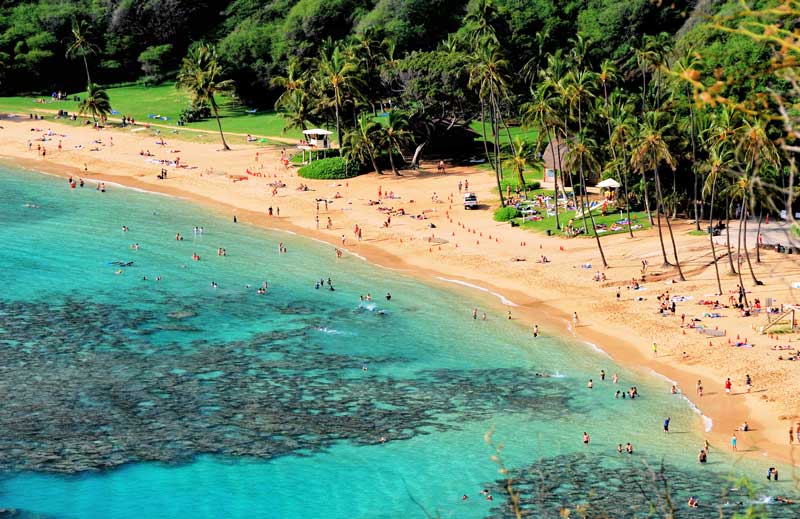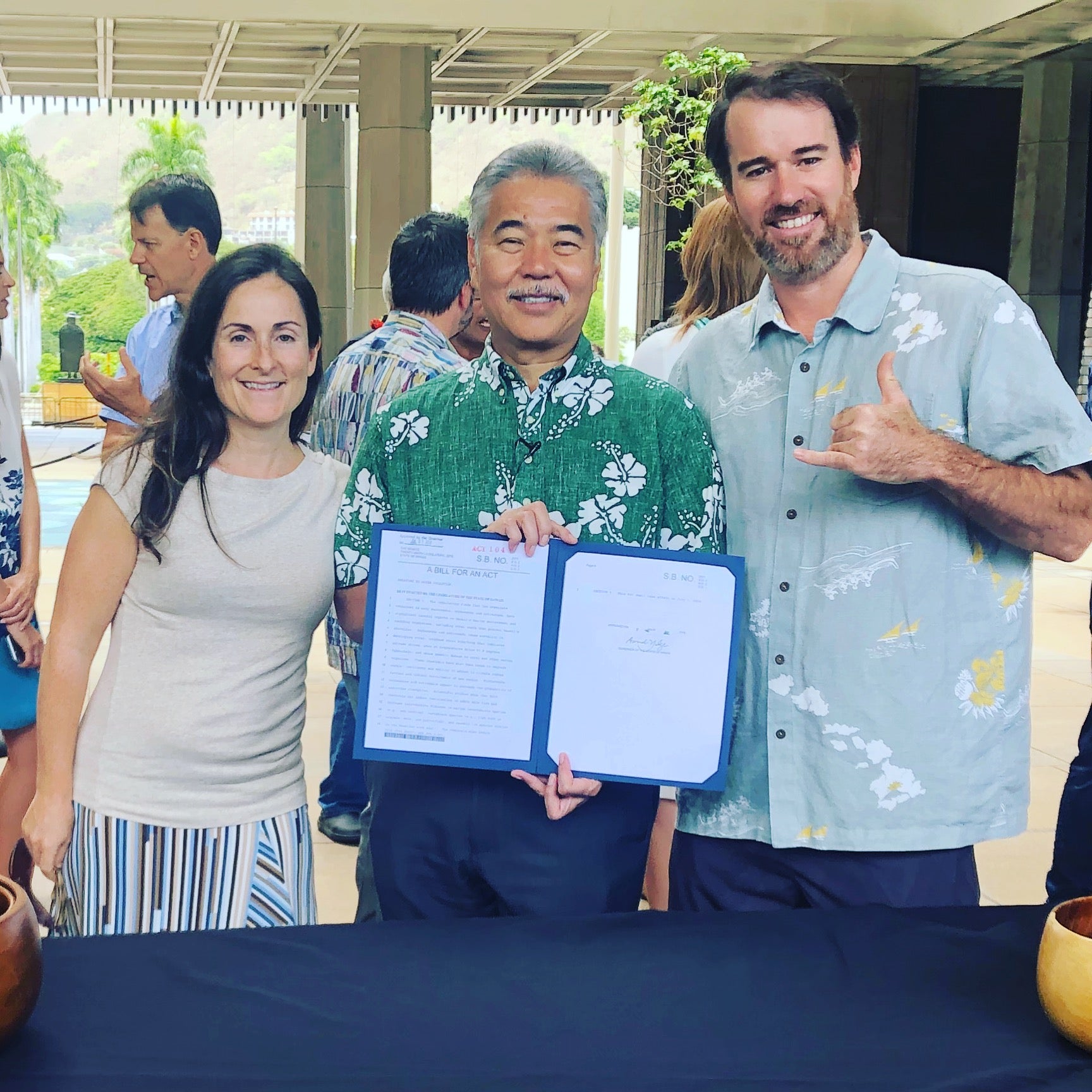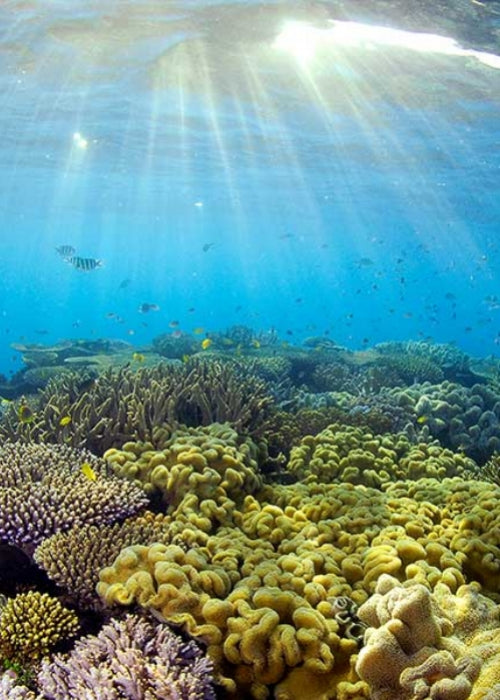Frequently Asked Questions
Ideally, the term "reef-safe" should refer to a sunscreen product that has been specifically formulated to minimize or eliminate any negative impact on coral reefs, marine life, and human health. While the term is not legally protected and lacks a universally accepted definition, there are certain criteria that a sunscreen product should meet to be considered "reef-safe" in the truest sense:
- Free from harmful ingredients: A genuinely reef-safe sunscreen should avoid using any of the 40+ known ingredients that are harmful to coral reefs, marine life, and humans. This includes, but is not limited to, oxybenzone, octinoxate, octocrylene, and other chemical UV filters that have been linked to coral bleaching and toxicity in aquatic organisms.
- Mineral-based protection: Reef-safe sunscreens should utilize non-nano zinc oxide their primary active ingredient. This mineral-based UV filter is considered to be a safer alternative to chemical filters, as it provides broad-spectrum protection without penetrating the skin or causing harm to marine life.
- Biodegradable and eco-friendly: A true reef-safe sunscreen should be biodegradable, meaning it breaks down naturally in the environment without causing harm to marine ecosystems. Additionally, the product should be eco-friendly in terms of its packaging and manufacturing processes, reducing its overall carbon footprint and environmental impact.
- Non-toxic to aquatic life: Reef-safe sunscreens should be tested for toxicity to aquatic organisms, ensuring they do not harm marine life when washed off into the ocean.
- Water-resistant: A reef-safe sunscreen should be water-resistant to minimize the amount of product that washes off into the ocean, reducing its potential impact on marine life.
In summary, the term "reef-safe" should ideally represent a sunscreen product that not only protects your skin from the sun's harmful rays but also safeguards the health of our oceans and marine life. By choosing a product that adheres to these criteria, consumers can actively contribute to preserving the delicate balance of our planet's aquatic ecosystems.
Kokua Sun Care sunscreens are specifically designed to be completely reef-safe, using only clean and environmentally friendly ingredients that biodegrade and protect your skin while preserving the delicate marine ecosystem.
Mineral sunscreen, also known as physical sunscreen, uses natural minerals like zinc oxide and titanium dioxide to create a physical barrier on the skin, reflecting and scattering harmful UV rays. Kokua Sun Care offers mineral sunscreens, providing broad-spectrum protection against both UVA and UVB rays without using harmful chemicals.
Yes, our sunscreens are formulated with clean ingredients, making them suitable for use by the entire family, including children. The mineral-based formulations are gentle on sensitive skin and provide effective protection against harmful UV rays. We have used our SPF50 on Diaper Rash for a 3 month old and have had many friends use on their babies. We do however, recommend spot-checking on the leg or arm with a small amount especially if your child has allergies to many common ingredients.
SPF (Sun Protection Factor) measures the amount of UVB protection a sunscreen provides. SPF30 blocks approximately 97% of UVB rays, while SPF50 blocks about 98% of UVB rays. While the difference may seem small, it can make a significant impact on sun protection, especially in high UV Index locations like Hawaii or other tropical destinations.
Yes, Kokua Sun Care sunscreens are water-resistant for up to 80 minutes as tested by the FDA, but we have seen protection up to 4 hours using the Australian 4 hour water resistance test that is made especially for Zinc based sunscreens. However, it is essential to reapply after swimming, towel drying, or excessive sweating to maintain optimal sun protection.
To ensure a sunscreen is reef-safe, look for products that do not contain harmful chemicals such as oxybenzone, octinoxate, and octocrylene. The truth is that "Reef-Safe" is not a legally protected term and scientist have identified over 40 ingredients that harm the coral, marine-life and humans, Kokua Sun Care sunscreens are formulated without ANY of these ingredients, using only Zinc as our mineral-based Active and clean, non-toxic ingredients that are safe for both your skin and the environment.
Kokua Sun Care is committed to providing clean, green sun care products. Our sunscreens do not contain synthetic fragrances, parabens, or other harmful preservatives. We prioritize the use of natural and safe ingredients in our formulations to ensure the health and well-being of our customers and the environment.
Yes, mineral sunscreens can be used on the face and are often recommended for individuals with sensitive skin or skin conditions like rosacea. Choose a facial mineral sunscreen like Kokua Sun Care SPF50 or SPF30 Tinted that is non-comedogenic (won't clog pores) and is fragrance-free to minimize the risk of irritation. Our SPF50 is better for oily skin and our SPF30 is perfect for drier skin as it acts as a moisturizer and SPF.
Several sunscreen and skincare ingredients have been identified as potentially harmful to marine life and coral reefs and humans. Some of the most common and concerning ingredients include:
- Oxybenzone (Benzophenone-3) - This chemical sunscreen ingredient has been shown to cause coral bleaching and damage to coral larvae, making it particularly harmful to reefs.
- Octinoxate (Ethylhexyl Methoxycinnamate) - Similar to oxybenzone, octinoxate has been linked to coral bleaching and endocrine disruption in marine life.
- Octocrylene - This chemical sunscreen ingredient has been found to accumulate in aquatic organisms and can be toxic to marine life, impacting the health of coral reefs.
- Homosalate - While less studied than oxybenzone and octinoxate, homosalate has been found to be toxic to some marine organisms and may also pose risks to coral reefs.
- Avobenzone - Some studies suggest that avobenzone may contribute to coral bleaching and toxicity in marine life, although it is considered to be less harmful than oxybenzone and octinoxate.
- Octisalate - While the environmental impact of octisalate is not as well-established as that of oxybenzone and octinoxate, there is some evidence to suggest it could pose risks to marine life and coral reefs.
- Parabens (e.g., methylparaben, ethylparaben, propylparaben) - These preservatives have been found to have endocrine-disrupting effects on marine life, which can have negative consequences on coral reef ecosystems.
- Triclosan - This antibacterial agent, found in some skincare products, has been shown to be toxic to algae and marine life and can contribute to antibiotic resistance in aquatic environments.
It is essential to choose sunscreens and skincare products that do not contain these harmful ingredients to minimize their impact on marine life and coral reefs. Opting for reef-safe, mineral-based sunscreens with eco-friendly packaging, like those offered by Kokua Sun Care, is an excellent way to protect your skin while also protecting the environment.
We ship out every Monday, Wednesday and Friday morning from Honolulu. Our free shipping option takes 3-4 days to West Coast and 4-5 days to the Central and East Coast states. If you select and pay for Priority shipping your products will arrive in 2-3 days.
Mahalo, and Please Reach Out if You Have any Questions or Concerns
For more information about Kokua Sun Care and our range of reef-safe, mineral sunscreens, please contact us by using the chat below or through our contact page by phone, text, or email.




